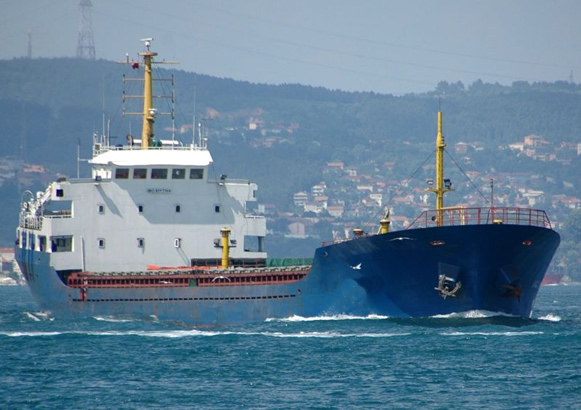Paragraph 1: The Urgent Need for Port Reforms in Nigeria
The Lagos Chamber of Commerce and Industry (LCCI) has issued a resounding call for immediate and comprehensive reforms within Nigeria’s port operations. The LCCI emphasizes the critical need for full automation of cargo clearance processes and the strategic redeployment of scanners as essential steps towards resolving persistent inefficiencies plaguing the sector. These inefficiencies, characterized by protracted cargo dwell times, manual processes, and bureaucratic bottlenecks, have severely hampered Nigeria’s competitiveness in the global maritime landscape. The LCCI’s president, Gabriel Idahosa, has expressed deep concern over the sluggish pace of Nigeria’s maritime and logistics sector, particularly in comparison to regional counterparts such as Ghana and South Africa. He highlighted the stark contrast between the average cargo dwell time at Apapa Port, which stands at a staggering 26 days, and the significantly shorter five- to seven-day average observed in neighboring countries. This disparity underscores the urgent need for transformative change within Nigeria’s port system.
Paragraph 2: Systemic Challenges and Eroding Competitiveness
The systemic challenges besetting Nigeria’s ports have far-reaching consequences, eroding the nation’s competitiveness and driving global shipping lines to divert cargo to neighboring countries. Reports indicate that major global players, including the United States and Russia, are increasingly favoring Togo’s Lomé Port over Nigerian ports due to the exorbitant costs, inefficient clearance procedures, and bureaucratic delays that characterize the latter. This trend reinforces concerns among industry operators and underscores the need for swift and decisive action to address the root causes of these issues. The LCCI has identified the persistent manual processes at Customs, bottlenecks in cargo examination, and a heavy reliance on human interface as key factors contributing to the inefficiencies that plague Nigeria’s ports.
Paragraph 3: LCCI’s Call for Action and Criticism of Tariff Hike
The LCCI has issued a wake-up call to authorities in the Nigerian maritime sector, urging them to implement the National Single Window Project without further delay, automate cargo clearance processes from end to end, and strategically redeploy mobile and digital cargo scanners at all major ports. These measures are deemed essential to streamlining operations, enhancing transparency, and reducing delays. Furthermore, the LCCI has criticized the recent 15% increase in port tariffs announced by the Nigerian Ports Authority, arguing that this hike places an undue burden on freight operators already grappling with inflationary pressures and exchange rate instability. The Chamber contends that while the intention may be to improve infrastructure, the timing of the tariff increase is insensitive to the current realities faced by businesses operating within the sector.
Paragraph 4: Addressing Customs Queries and Recognizing Positive Developments
The LCCI has also drawn attention to the persistent delays caused by excessive Customs queries on imported goods. These queries not only prolong clearance processes but also create opportunities for abuse. The Chamber has emphasized the need for enhanced collaboration with Customs authorities to streamline procedures and curb discretionary bottlenecks. Despite the numerous challenges, the LCCI has acknowledged some positive developments within the port logistics ecosystem. Notably, transport rates from the ports have decreased by as much as 60% in recent weeks, offering a welcome respite for businesses and shippers. The Chamber has also commended the Nigerian Railway Corporation for expanding cargo movement by rail from Apapa to destinations within Lagos and Ibadan, recognizing this as a promising shift away from road dependence.
Paragraph 5: Stakeholder Expectations and the National Single Window Project
Other stakeholders, including the Importers Association of Nigeria (IMAN), share the LCCI’s call for urgent reforms. IMAN anticipates that the implementation of the National Single Window project will significantly expedite shipment clearance, reducing processing times from months to as little as three hours. This streamlined process is expected to boost turnover for traders and enhance government revenue generation. IMAN President, Kingsley Chikezie, has expressed optimism about the project’s potential to improve efficiency and facilitate trade. He noted that importers eagerly await the benefits of the National Single Window, which promises to significantly reduce the time and effort required for shipment clearance.
Paragraph 6: The Path Forward: Collaboration and Commitment
The LCCI remains committed to ongoing stakeholder engagement and will continue to advocate for reforms that promote transparency, efficiency, and global competitiveness within Nigeria’s maritime sector. The Chamber recognizes that without urgent action to align port performance with international standards, Nigeria risks further isolation from global logistics networks. Collaboration between the LCCI, the Nigeria Customs Service, the Federal Ministry of Transportation, and other relevant agencies is deemed crucial to addressing the challenges and implementing the necessary reforms. The LCCI has emphasized the urgency of the situation, stating that the time to act is now. The future of Nigeria’s maritime sector hinges on the collective efforts of all stakeholders to modernize operations, enhance efficiency, and restore the nation’s competitiveness in the global arena.














